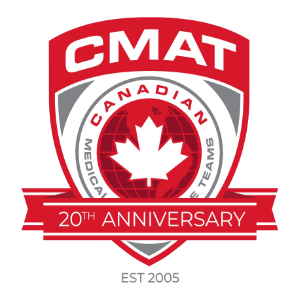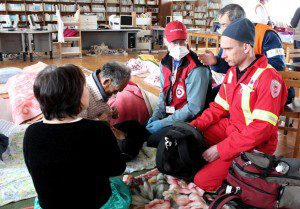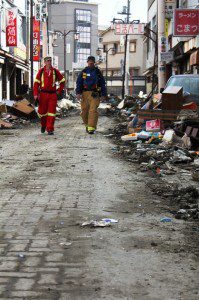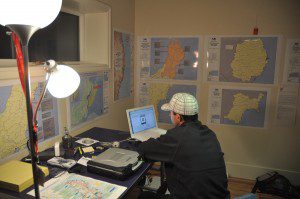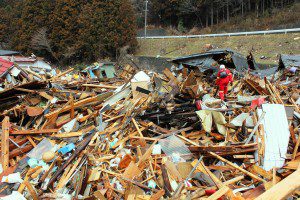
CMAT Paramedic Martin Metz conducts a search and recovery in Onagawa, about 15km east of Ishinomaki.
Sunday, March 27, 2011 – A magnitude-6.1 earthquake shook eastern Japan off the quake-ravaged coast on Monday morning, prompting Japan to issue a tsunami alert. There were no immediate reports of damage or injuries, but the Japan Meteorological Agency announced that a tsunami of up to 1.6 feet (a half meter) may wash into Miyagi Prefecture. The tsunami alert was localized to Japan. The alert was prompted by a quake that the U.S. Geological Survey measured at 7:23 a.m. Monday Japan time near the east coast of Honshu. The USGS said the quake was 3.7 miles (5.9 kilometres) deep.
